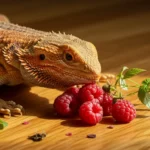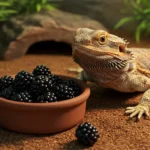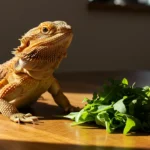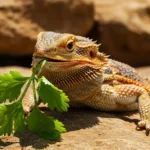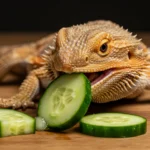If you’ve ever caught your scaly friend eyeing your snack bowl, you may have wondered: Can Bearded Dragons Have Blackberries? A Great Fruit Option or just another risky treat? As a responsible owner, it’s normal to question which fruits are safe and which ones could harm your dragon’s health.
Blackberries are juicy, sweet, and packed with nutrients that we humans love — but when it comes to reptiles, things work a little differently. Some fruits are safe in small amounts, while others can upset digestion or interfere with calcium absorption. That’s why it’s important to understand not just whether bearded dragons can have blackberries, but also how often, in what form, and what benefits or risks come with them.
In this guide, we’ll take a close look at the real question — Can Bearded Dragons Have Blackberries? A Great Fruit Option for your pet’s diet — or something best kept as an occasional treat. You’ll learn the nutritional benefits, potential risks, and expert tips for safely feeding this berry to your bearded dragon, so you can keep your reptile healthy, happy, and thriving.
Can Bearded Dragons Have Blackberries? The Essential Answer
Blackberries are a tasty fruit that many bearded dragon owners are curious about. Knowing whether your pet can safely enjoy them is essential for a balanced diet. This section will answer the most important questions about feeding blackberries to bearded dragons.
Are Blackberries Safe for Bearded Dragons to Eat?
Yes, blackberries are generally safe for bearded dragons when given in moderation. They are non-toxic and contain vitamins and antioxidants that can benefit your dragon’s health. However, because blackberries contain natural sugars and oxalates, they should not replace staple foods like leafy greens or insects. Choosing fresh, pesticide-free berries ensures safety and reduces digestive risks.
How Often Can Bearded Dragons Have Blackberries Safely?
Blackberries should only be offered as an occasional treat. Feeding your dragon a few berries once every one or two weeks is ideal. Overfeeding can lead to digestive problems or contribute to obesity due to the fruit’s sugar content. Always monitor how your bearded dragon responds to new foods and adjust portions accordingly.
Benefits of Blackberries for Bearded Dragon Health
Blackberries provide several health benefits. They are rich in vitamins A, C, and K, which support vision, immunity, and overall growth. The antioxidants in blackberries help protect cells from damage, while the fruit’s water content can contribute to hydration. When fed occasionally, blackberries can make a nutritious and enjoyable treat for your dragon.
Risks of Overfeeding Blackberries to Bearded Dragons
Feeding too many blackberries can have negative effects. Excess sugar may lead to weight gain or digestive issues like diarrhea. High oxalate intake can interfere with calcium absorption, increasing the risk of metabolic bone disease. It’s important to limit fruit treats and maintain a diet primarily composed of greens and insects.
Nutritional Value of Blackberries for Bearded Dragons
Understanding the nutritional profile of blackberries helps pet owners make informed feeding decisions. Blackberries offer a mix of vitamins, minerals, and fiber, but moderation is key. This section will break down the nutrients that affect your dragon’s health.
Vitamins and Minerals in Blackberries That Support Reptiles
Blackberries contain vitamins A, C, and K, which are essential for growth, immunity, and blood health. They also provide trace minerals like manganese and zinc, supporting metabolism and cellular function. These nutrients make blackberries a healthy supplement to your dragon’s main diet of greens and insects.
Fiber and Water Content in Blackberries for Hydration
Blackberries are about 88–90% water and also contain dietary fiber. The water content can help with hydration, especially in dry environments, while fiber promotes healthy digestion. However, too much fiber or water can cause loose stools, so it’s important to serve small portions.
Calcium-to-Phosphorus Ratio in Blackberries Explained
A food’s calcium-to-phosphorus (Ca:P) ratio is critical for bearded dragons. Blackberries have a Ca:P ratio of roughly 1.3:1, which falls within the safe range. A proper ratio helps your dragon absorb calcium efficiently, supporting strong bones and preventing metabolic bone disease. Foods with poor Ca:P ratios should not be offered frequently.
Oxalates in Blackberries and Their Effect on Bearded Dragons
Oxalates are naturally occurring compounds that bind calcium, reducing its absorption. Blackberries contain moderate levels of oxalates, which is why they should be fed sparingly. Overconsumption of high-oxalate foods can lead to calcium deficiencies and weakened bones. Pairing occasional fruit treats with calcium-rich greens can help maintain a healthy balance.
How to Prepare and Serve Blackberries to Bearded Dragons
Proper preparation ensures your bearded dragon can safely enjoy blackberries. How you clean, cut, and serve the fruit affects digestion and overall health. This section will guide you through the best practices for serving blackberries.
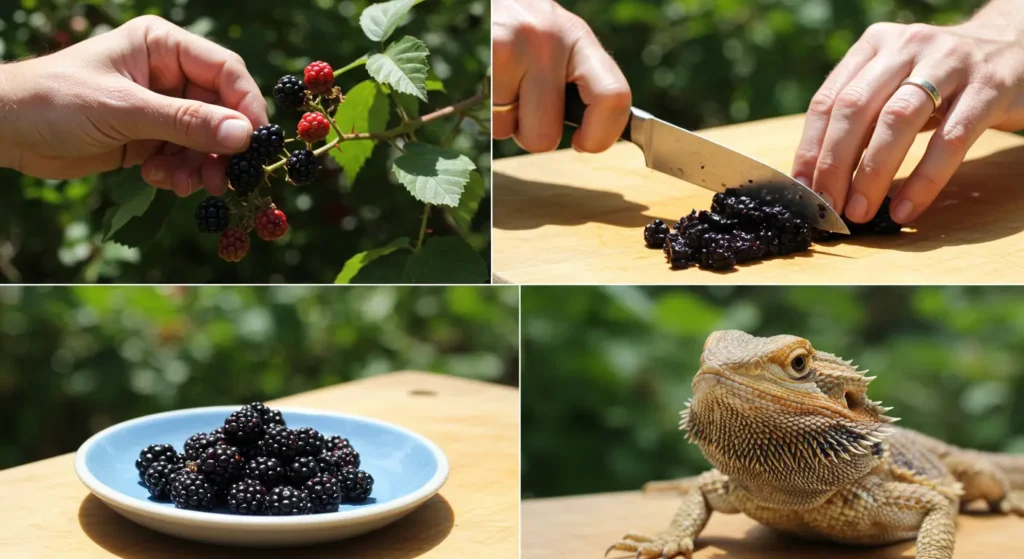
Washing and Cutting Blackberries Before Feeding
Always wash blackberries thoroughly before offering them to your dragon. Rinse them under cool water to remove dirt, pesticides, or chemicals. After washing, cut the berries into smaller pieces, especially for younger dragons. This prevents choking and makes it easier for your bearded dragon to chew and digest the fruit.
Fresh vs Frozen Blackberries — Which Should Bearded Dragons Eat?
Fresh blackberries are typically the safest choice for your pet. Frozen berries can be served, but they must be fully thawed to avoid temperature shock. Frozen blackberries can also be softer and messier, which may cause spills or attract bacteria if left in the enclosure. Always serve at room temperature for safety.
Proper Portion Size of Blackberries for Bearded Dragons
Portion control is key when feeding blackberries. Offer just one or two berries at a time, depending on your dragon’s size. Overfeeding can lead to digestive upset or excess sugar intake. Small, occasional portions ensure your pet enjoys the fruit without health risks.
Serving Blackberries to Baby and Juvenile Bearded Dragons
Baby and juvenile dragons have smaller mouths and more sensitive digestive systems. Cut blackberries into tiny pieces or mash them slightly before feeding. Supervise younger dragons to ensure they chew properly. Using small pieces helps prevent choking and encourages healthy eating habits from a young age.
Can Bearded Dragons Eat Blackberries with Other Foods?
Blackberries can be part of a balanced diet when combined with other safe foods. Pairing them wisely helps encourage healthy eating habits. This section explores how to mix blackberries with other foods for optimal nutrition.
Mixing Blackberries with Greens to Encourage Eating
You can use small pieces of blackberry to entice your dragon to eat leafy greens. Spread the fruit across a salad of collard greens, dandelion greens, or mustard greens. This method makes mealtime more appealing while ensuring your dragon still consumes nutrient-rich vegetables.
Safe Fruits to Combine with Blackberries in a Beardie Diet
Other safe fruits to include occasionally are blueberries, raspberries, and strawberries. These fruits share similar nutritional benefits and can be offered in moderation. Avoid citrus fruits and overly sweet fruits that may upset digestion or affect calcium absorption.
Why Blackberries Are Only a Treat, Not a Staple Food
Blackberries are high in sugar and should not replace staple foods. A diet based primarily on greens and insects is essential for strong bones and overall health. Treats like blackberries should only complement the main diet, ensuring a balanced nutrient intake.
Foods to Avoid When Feeding Blackberries to Bearded Dragons
Never mix blackberries with processed or sugary human foods. Avoid toxic fruits such as grapes, avocado, and rhubarb. Also, limit high-oxalate vegetables if serving fruit treats, as this can interfere with calcium absorption and lead to health issues.
Final Thoughts on Blackberries in a Bearded Dragon Diet
Blackberries can be a healthy, occasional treat when fed correctly. Understanding proper portions, combinations, and frequency ensures your dragon stays safe and healthy. This section summarizes the key points for responsible feeding.
Key Takeaways About Bearded Dragons Eating Blackberries
Blackberries are safe, nutritious, and tasty when given in moderation. Always supervise feeding, prepare the fruit properly, and avoid overfeeding. Incorporating blackberries occasionally can enrich your dragon’s diet without harming health.
Best Practices for Feeding Blackberries Without Health Risks
Feed small portions once every one to two weeks. Wash and cut the berries thoroughly, and pair them with leafy greens when appropriate. Monitor your dragon for digestive issues or changes in appetite. These steps reduce the risk of obesity, diarrhea, and calcium deficiencies.
When to Ask a Vet About Bearded Dragons and Blackberries
If your dragon shows signs of digestive upset, lethargy, or changes in weight after eating fruit, consult a reptile veterinarian. Always seek professional advice when introducing new foods to ensure safe nutrition.
Balanced Diet Checklist for Bearded Dragons (Fruits, Greens, Insects)
- Leafy Greens: Collard greens, dandelion greens, mustard greens
- Insects: Dubia roaches, crickets, mealworms (occasional)
- Fruits: Blackberries, blueberries, raspberries, in moderation
- Supplements: Calcium powder and occasional vitamin D3
Following this checklist ensures your bearded dragon receives a nutrient-rich, balanced diet while enjoying occasional fruit treats like blackberries safely.


